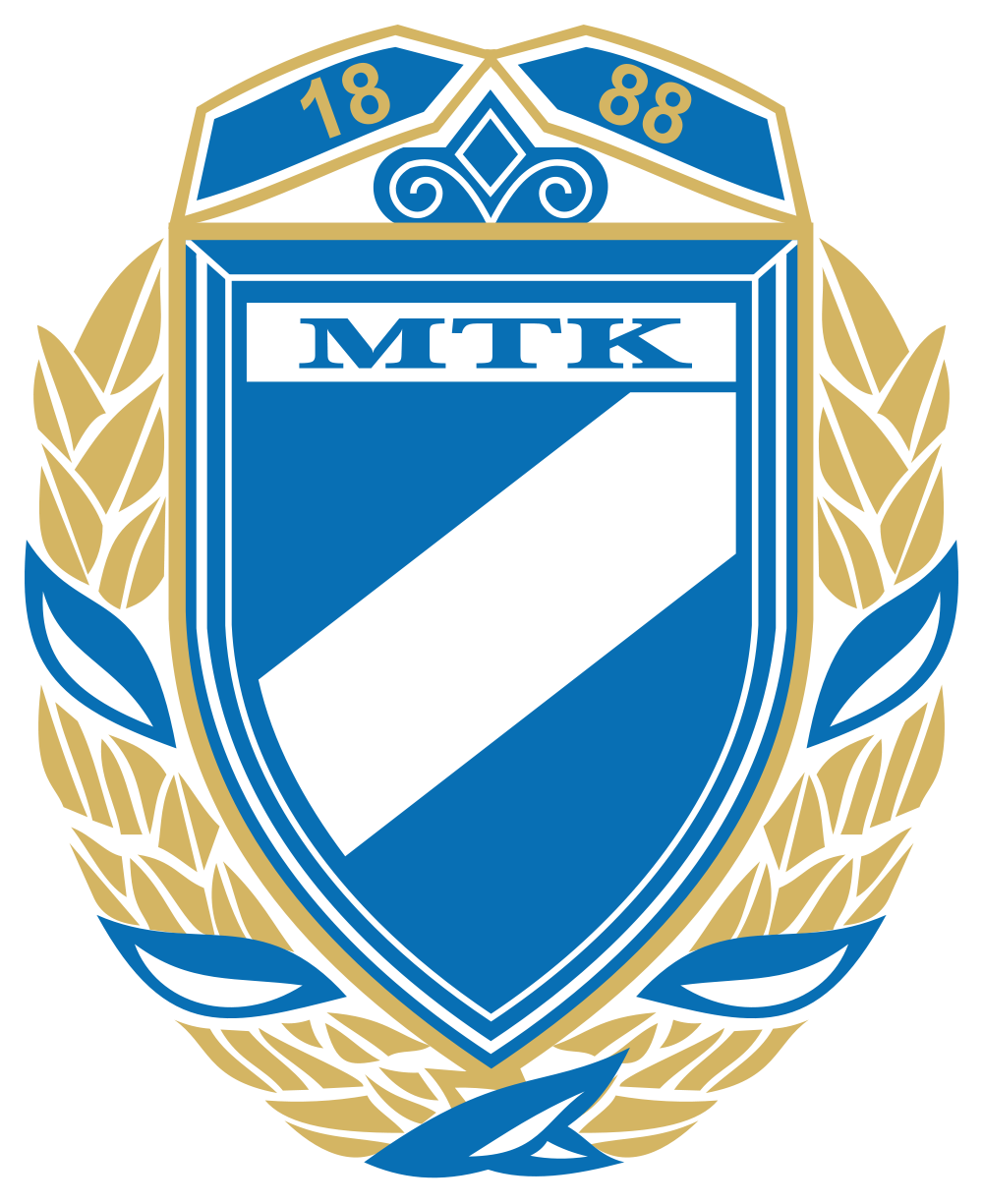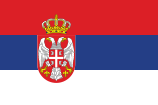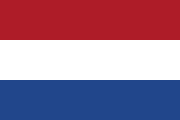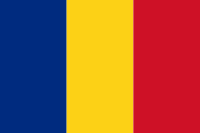MTK Hungária FC
MTK
 |
| Full name |
Magyar Testgyakorlók Köre
Budapest FC |
| Founded |
1888 |
| Ground |
Stadion Hidegkuti Nándor,
Budapest
(Capacity: 12,700) |
| Chairman |
 László Domonyai László Domonyai |
| Manager |
 József Garami József Garami |
| League |
Soproni Liga |
| 2008-09 |
7th |
|
|
|
MTK Budapest FC or just MTK is a football club from Budapest, Hungary. The team plays in the top division of the Hungarian League. The club's colours are blue and white. As one of the most successful Hungarian football clubs, MTK has won the Hungarian League 23 times and the Hungarian Cup 12 times. The club has also won the Hungarian Super Cup 2 times. In 1955, as Vörös Lobogó SE, they became the first Hungarian team to play in the European Cup and in 1964 they finished as runners-up in the European Cup Winners' Cup after losing to Sporting Clube de Portugal in the final. The club founded the Sándor Károly Football Academy in 2001. The Academy also has a partnership agreement with Liverpool FC.
History
Foundation
About a dozen sport loving citizens decided on 16 November 1888 in a cafe in Budapest to form the Magyar Testgyakorlók Köre (Circle of Hungarian Fitness Activists). Many founding fathers were members of the Hungarian aristocracy and the wealthy Jewish community of the capital. The colours of the club became blue and white, and it had 31 members by the end of the same year. The club's first divisions offered sporting possibilities only for fencing and gymnastics. As football was spreading far and wide in Hungary also the club established its football division on 12 March 1901. The first public football match of the Blues was a 0-0 draw against BTC, which later became Hungarian champions in 1901 and 1902. MTK started to play football in the 2nd league in 1902, but a year later the club got the chance to play in the first league. The first year brought the club a 3rd place and it did not take long for the Blues to win the first championship, which happened a year later in 1904.
Amateur Era
The first president of the club became a well-to-do entrepreneur, his vice a close friend of him who turned out to be an excellent sport oriented organiser. His name was Alfréd Brüll who became the club's legendary and respected president from 1905 until the 1940s. Before the introduction of professional football MTK was the most successful Hungarian team. Prior to the Second World War the team managed to win 15 Hungarian League titles and gained 7 Hungarian Cup victories. During the professional era the team could not repeat the same performance but still won 2 championships. Due to the participation of many Jewish figures in the club, it had the reputation of being a "Jewish" team and suffered from antisemitism beginning in the 1930s and 1940s, [1] a phenomenon that continues to the present.[2]
Professional Era
The Mighty Magyar Era
In 1949 when Hungary became a communist state, MTK were taken over by the secret police, the ÁVH, and subsequently the club became known as Textiles SE. They then became Bástya SE, then Vörös Lobogó SE, which means Red Banner or Red Flag, and then finally back to MTK. Despite this turmoil, the 1950s proved a successful era for the club and with a team coached by Márton Bukovi and including Péter Palotás, Nándor Hidegkuti, Mihály Lantos and József Zakariás, they won three Hungarian League titles, a Hungarian Cup and a Mitropa Cup. In 1955, as Vörös Lobogó SE, they also became the first ever Hungarian team to play in a European Cup. On September 7, 1955 at the Népstadion, Palotás scored a hat-trick as they beat RSC Anderlecht 6-3 in the first leg of the first round and thus became the first player to score a hat-trick in a European Cup game.
MTK also played a major role in the success of the legendary Hungary team known as the Mighty Magyars. While Honvéd provided the team with a nucleus of players, it was Márton Bukovi at MTK who developed the vital 4-2-4 formation, later adopted by national coach Gusztáv Sebes, himself a former MTK player. It was also at MTK that Bukovi together with, Péter Palotás and Nándor Hidegkuti, also pioneered the crucial deep lying centre-forward position. In 1953 Hidegkuti would exploit this position to great effect as he scored a hat-trick for Hungary when they beat England 6-3 at Wembley Stadium. In addition Mihály Lantos and József Zakariás provided the Mighty Magyars with a solid defence. During the early 1950s these MTK players helped Hungary become Olympic Champions in 1952, Central European Champions in 1953, defeat England twice and reach the 1954 World Cup final. They absorbed Egyetértés VM After the first half of 1974–75 season. They relegated to Second League twice in 1980–81 season after finishing 17th or second from last and in 1993–94 season after finishing 16th or last.
Honours
- Hungarian League
- Winner : 1904, 1908, 1914, 1917, 1918, 1919, 1920, 1921, 1922, 1923, 1924, 1925, 1929, 1936, 1937, 1951, 1953, 1958, 1987, 1997, 1999, 2003, 2008: 23
- Runner-up : 1910, 1911, 1912, 1913, 1926, 1928, 1931, 1933, 1940, 1949, 1950, 1952, 1954, 1955, 1957, 1959, 1963, 1990, 2000, 2007: 20
- Third: 1903, 1905, 1907, 1927, 1930, 1932, 1935, 1938, 1939, 1946, 1950, 1956, 1961, 1978, 1989, 2005: 16
- Hungarian Cup
- Winner : 1910, 1911, 1912, 1914, 1923, 1925, 1932, 1952, 1968, 1997, 1998, 2000: 12
- Runner-up : 1935, 1976: 2
- Mitropa Cup
- Winner: 1955, 1963: 2
- Runner-up : 1959: 1
- European Cup Winners' Cup
Current squad
- As of 1 March 2010
Note: Flags indicate national team as has been defined under FIFA eligibility rules. Players may hold more than one non-FIFA nationality.
| No. |
|
Position |
Player |
| 1 |
 |
GK |
Lajos Hegedűs |
| 2 |
 |
MF |
Máté Pátkai |
| 3 |
 |
DF |
Adrián Szekeres |
| 4 |
 |
DF |
Dániel Vadnai |
| 5 |
 |
DF |
Béla Balogh |
| 7 |
 |
DF |
Dejan Vukadinovic |
| 9 |
 |
FW |
András Pál |
| 15 |
 |
FW |
Norbert Könyves |
| 17 |
 |
FW |
Márton Eppel |
|
|
| No. |
|
Position |
Player |
| 19 |
 |
MF |
József Kanta |
| 21 |
 |
FW |
Marcell Molnár |
| 23 |
 |
MF |
Ádám Szabó |
| 24 |
 |
DF |
Bence Zámbó (on loan from FC ETO Györ) |
| 25 |
 |
MF |
Márk Nikházi |
| 27 |
 |
DF |
Ádám Pintér |
| 29 |
 |
GK |
Zoltán Szatmári |
| 30 |
 |
FW |
Patrik Tischler |
| -- |
 |
MF |
Máté Skriba (on loan from Szombathely) |
|
Out on loan
Note: Flags indicate national team as has been defined under FIFA eligibility rules. Players may hold more than one non-FIFA nationality.
| No. |
|
Position |
Player |
| — |
 |
DF |
László Sütõ (at Pécsi MFC) |
| — |
 |
MF |
Ádám Simon (at Szombathelyi Haladás) |
|
 |
DF |
Ferenc Fodor (at  Oldham Athletic FC)}[3] Oldham Athletic FC)}[3] |
| — |
 |
MF |
László Szabó (at Pécsi MFC) |
| — |
 |
MF |
Gábor Nagy (at Szombathelyi Haladás) |
| — |
 |
MF |
Tamás Kecskés (at Pécsi MFC) |
|
|
|
List of Hungarian football transfers winter 2009–2010
European cup history
UEFA Cup Winners' Cup
UEFA Intertoto Cup
UEFA Cup
UEFA Champions League
Famous players
see also Category:MTK Hungária FC footballers
 Gyula Baratky Gyula Baratky Gyula Bodola Gyula Bodola Ákos Buzsáky Ákos Buzsáky Péter Czvitkovics Péter Czvitkovics Márton Fülöp Márton Fülöp  Béla Guttmann Béla Guttmann Attila Hajdú Attila Hajdú Glenn Helder Glenn Helder Nándor Hidegkuti Nándor Hidegkuti Ferenc Hirzer Ferenc Hirzer Norberto Höfling Norberto Höfling Ádám Hrepka Ádám Hrepka Béla Illés Béla Illés Roland Juhász Roland Juhász Jenő Kálmár Jenő Kálmár Jenő Károly Jenő Károly
|
 Izidor Kürschner Izidor Kürschner Mihály Lantos Mihály Lantos Gyula Mándi Gyula Mándi János Molnár János Molnár Krisztián Németh Krisztián Németh Péter Palotás Péter Palotás Franz Platko Franz Platko Károly Sándor Károly Sándor Ferenc Sas Ferenc Sas Alfréd Schaffer Alfréd Schaffer Imre Schlosser Imre Schlosser Gusztáv Sebes Gusztáv Sebes Pál Titkos Pál Titkos Roland Varga Roland Varga József Zakariás József Zakariás
|
Selected former managers
 Jimmy Hogan (1914–19)
Jimmy Hogan (1914–19) Pál Titkos (1946–47)
Pál Titkos (1946–47) Márton Bukovi (1947–54), (1957–59)
Márton Bukovi (1947–54), (1957–59) Tibor Kemeny (1955)
Tibor Kemeny (1955) Nándor Hidegkuti (1959–60), (1967–68)
Nándor Hidegkuti (1959–60), (1967–68) Henk ten Cate (1999-00)
Henk ten Cate (1999-00)
see also Category:MTK Hungária FC football managers
Sources
- Behind The Curtain - Travels in Eastern European Football: Jonathan Wilson (2006) [1]
References
External links
|
Nemzeti Bajnokság I seasons |
|
|
1901 · 1902 · 1903 · 1904 · 1905 · 1906–07 · 1907–08 · 1908–09 · 1909–10 · 1910–11 · 1911–12 · 1912–13 · 1913–14 · 1916–17 · 1917–18 · 1918–19 · 1919–20 · 1920–21 · 1921–22 · 1922–23 · 1923–24 · 1924–25 · 1925–26 · 1926–27 · 1927–28 · 1928–29 · 1929–30 · 1930–31 · 1931–32 · 1932–33 · 1933–34 · 1934–35 · 1935–36 · 1936–37 · 1937–38 · 1938–39 · 1939–40 · 1940–41 · 1941–42 · 1942–43 · 1943–44 · 1944 · 1945 · 1945–46 · 1946–47 · 1947–48 · 1948–49 · 1949–50 · 1950 · 1951 · 1952 · 1953 · 1954 · 1955 · 1956 · 1957 · 1957–58 · 1958–59 · 1959–60 · 1960–61 · 1961–62 · 1962–63 · 1963 · 1964 · 1965 · 1966 · 1967 · 1968 · 1969 · 1970 · 1970–71 · 1971–72 · 1972–73 · 1973–74 · 1974–75 · 1975–76 · 1976–77 · 1977–78 · 1978–79 · 1979–80 · 1980–81 · 1981–82 · 1982–83 · 1983–84 · 1984–85 · 1985–86 · 1986–87 · 1987–88 · 1988–89 · 1989–90 · 1990–91 · 1991–92 · 1992–93 · 1993–94 · 1994–95 · 1995–96 · 1996–97 · 1997–98 · 1998–99 · 1999–2000 · 2000–01 · 2001–02 · 2002–03 · 2003–04 · 2004–05 · 2005–06 · 2006–07 · 2007–08 · 2008–09 · 2009–10 · 2010–11
|
|

 Jimmy Hogan (1914–19)
Jimmy Hogan (1914–19) Pál Titkos (1946–47)
Pál Titkos (1946–47) Márton Bukovi (1947–54), (1957–59)
Márton Bukovi (1947–54), (1957–59) Tibor Kemeny (1955)
Tibor Kemeny (1955) Nándor Hidegkuti (1959–60), (1967–68)
Nándor Hidegkuti (1959–60), (1967–68) Henk ten Cate (1999-00)
Henk ten Cate (1999-00)